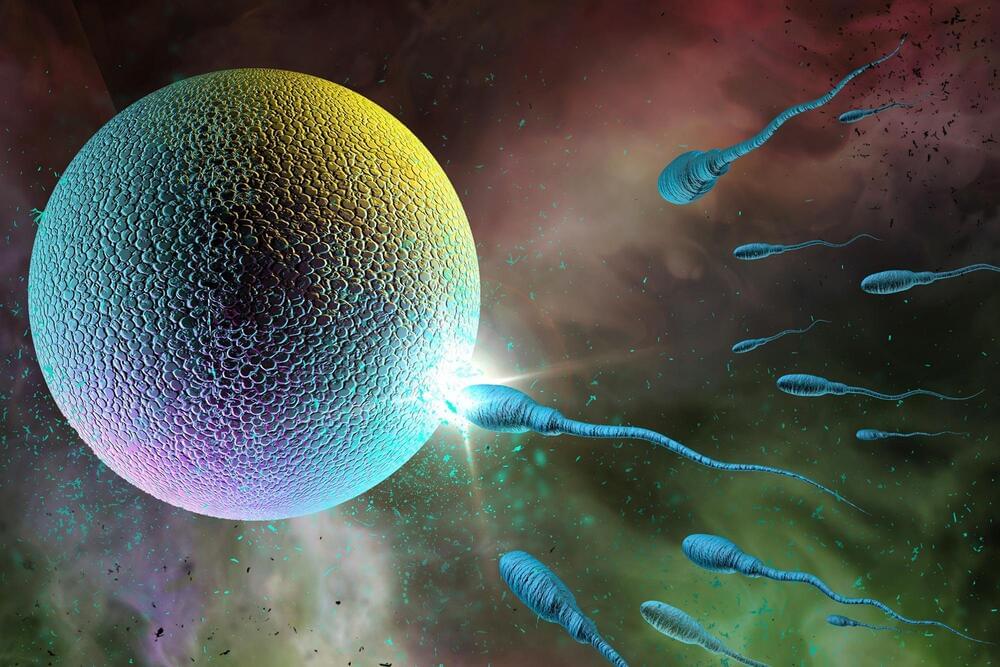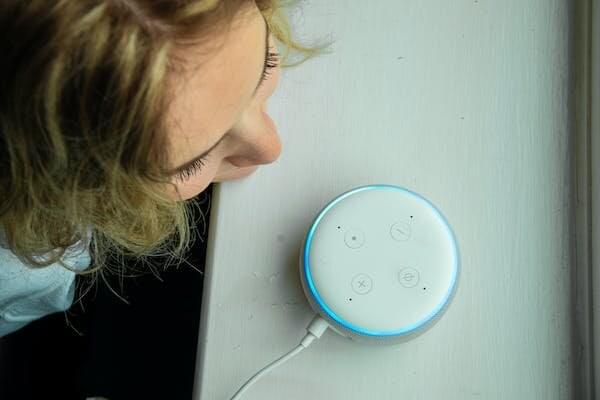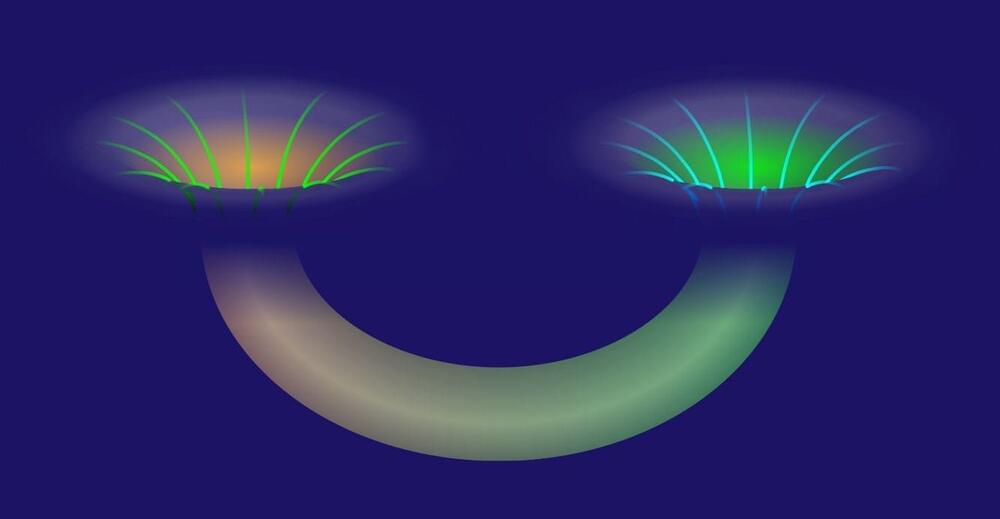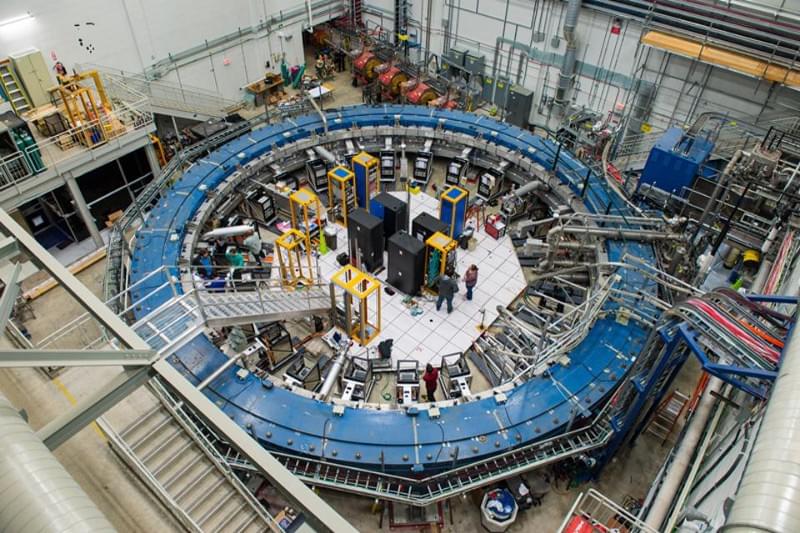The head of Google parent company Alphabet chose an funny example to allay fears of artificial intelligence.



Scientists have detected a sunspot that’s so huge it’s changing the way our sun vibrates.
Sunspots appear as dark blotches on the sun’s surface because they are cooler than the surrounding areas. They form where magnetic fields are particularly strong, driven by the electrically charged gases that constantly swirl inside our nearest star.
Sometimes these magnetic fields can be so intense that they prevent some heat from reaching the surface, forming a sunspot.

According to research from the Center for Genomic Regulation (CRG) published in the journal Nature, immature human egg cells bypass a critical metabolic process believed to be necessary for producing energy.
The cells modify their metabolism to stop producing reactive oxygen species, dangerous molecules that can accumulate, damage DNA
DNA, or deoxyribonucleic acid, is a molecule composed of two long strands of nucleotides that coil around each other to form a double helix. It is the hereditary material in humans and almost all other organisms that carries genetic instructions for development, functioning, growth, and reproduction. Nearly every cell in a person’s body has the same DNA. Most DNA is located in the cell nucleus (where it is called nuclear DNA), but a small amount of DNA can also be found in the mitochondria (where it is called mitochondrial DNA or mtDNA).
A look at revolutionary new materials with seemingly impossible properties.
Start protecting your internet experience today with 77% off a 3 year plan by using code ‘ISAAC’ at http://www.NordVPN.com/ISAAC
Metamaterials offer many properties normally not found in nature, from superior lenses and communications to stealth applications, potentially offering invisibility. Today we’ll examine the science behind that and look at many other possible applications.
AMA thread tonight (Thursday March 29) at 6 PM EST over at /r/space on reddit: https://www.reddit.com/r/space/comments/881rbl/ama_this_is_i…_anything/
SFIA Merchandise available: https://www.signil.com/sfia.
Visit our Website: http://www.isaacarthur.net.
Join the Facebook Group: https://www.facebook.com/groups/1583992725237264/
Support the Channel on Patreon: https://www.patreon.com/IsaacArthur.
Visit the sub-reddit: https://www.reddit.com/r/IsaacArthur/
Listen or Download the audio of this episode from Soundcloud: https://soundcloud.com/isaac-arthur-148927746/advanced-metamaterials.
Cover Art by Jakub Grygier: https://www.artstation.com/artist/jakub_grygier.
Script Editors.
Derek Hightower.
Keith Blockus.
Luke Parrish.
Mitch Armstrong.
Graphics Team:
Edward Nardella.
Jarred Eagley.
Justin Dixon.
Katie Byrne.
Kris Holland of Mafic Stufios: www.maficstudios.com.
Misho Yordanov.
Pierre Demet.
Sergio Botero: https://www.artstation.com/sboterod?fref=gc.
Stefan Blandin.
Music Supervisor.

As demonstrated by breakthroughs in various fields of artificial intelligence (AI), such as image processing, smart health care, self-driving vehicles and smart cities, this is undoubtedly the golden period of deep learning. In the next decade or so, AI and computing systems will eventually be equipped with the ability to learn and think the way humans do—to process continuous flow of information and interact with the real world.
However, current AI models suffer from a performance loss when they are trained consecutively on new information. This is because every time new data is generated, it is written on top of existing data, thus erasing previous information. This effect is known as “catastrophic forgetting.” A difficulty arises from the stability-plasticity issue, where the AI model needs to update its memory to continuously adjust to the new information, and at the same time, maintain the stability of its current knowledge. This problem prevents state-of-the-art AI from continually learning from real world information.
Edge computing systems allow computing to be moved from the cloud storage and data centers to near the original source, such as devices connected to the Internet of Things (IoTs). Applying continual learning efficiently on resource limited edge computing systems remains a challenge, although many continual learning models have been proposed to solve this problem. Traditional models require high computing power and large memory capacity.



For all of history, there’s been an underlying but unspoken assumption about the laws that govern the Universe: If you know enough information about a system, you can predict precisely how that system will behave in the future. The assumption is, in other words, deterministic. The classical equations of motion — Newton’s laws — are completely deterministic. The laws of gravity, both Newton’s and Einstein’s, are deterministic. Even Maxwell’s equations, governing electricity and magnetism, are 100% deterministic as well.
But that picture of the Universe got turned on its head with a series of discoveries that began in the late 1800s. Starting with radioactivity and radioactive decay, humanity slowly uncovered the quantum nature of reality, casting doubt on the idea that we live in a deterministic Universe. Predictively, many aspects of reality could only be discussed in a statistical fashion: where a set of probable outcomes could be presented, but which one would occur, and when, could not be precisely established. The hopes of avoiding the necessity of “quantum spookiness” was championed by many, including Einstein, with the most compelling alternative to determinism put forth by Louis de Broglie and David Bohm. Decades later, Bohmian mechanics was finally put to an experimental test, where it failed spectacularly. Here’s how the best alternative to the spooky nature of reality simply didn’t hold up.

Avi Loeb, Professor of Science at Harvard University, joins us to discuss a recent interstellar visitor, if we’ve already encountered alien technology, and whether we’re ultimately alone in the cosmos.
Topics discussed in this episode include:
-Whether ‘Oumuamua is alien or natural in origin.
–The culture of science and how it affects fruitful inquiry.
–Looking for signs of alien life throughout the solar system and beyond.
–Alien artefacts and galactic treaties.
–How humanity should handle a potential first contact with extraterrestrials.
–The relationship between what is true and what is good.
You can find the page for this podcast here: https://futureoflife.org/2021/07/09/avi-loeb-on-oumuamua-ali…tructures/
Apply for our new Podcast Producer position here: https://futureoflife.org/job-postings/
Check out the audio version of the episode here: https://soundcloud.com/futureoflife/avi-loeb-on-oumuamua-ali…tructures.